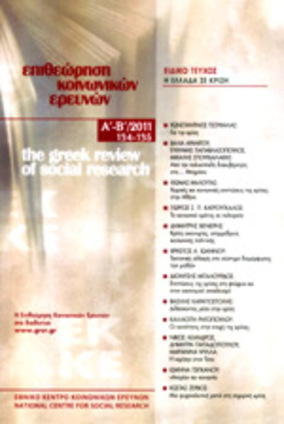Dominations etrangeres et transformations de l' agriculture cretoise entre le XIVe et le XIX siecles
Part of : Επιθεώρηση κοινωνικών ερευνών ; No.Special, 1981, pages 180-190
Issue:
Pages:
180-190
Parallel Title:
Foreign dominations and changes in cretan agriculture : (XIVth-XIXth centuries)
Section Title:
Articles
Abstract:
The development and commercialization of the three main productsof Cretan agriculture (cereals, vine, olive oil) are seen in relation tothe economic policies of the two Powers (first. Venice and then theOttoman Empirei which successively dominated Crete.The prime objective of these policies was not to act for the interestsof Cretan population but for those of the sovereign power.Consequently we can observe that cereal crops and the commercialization of grain were preponderant at the beginning of Venetiandomination; this corresponds to a period when, for various reasons, the Republic badly needed cereals. Venice therefore encouraged thesecrops until about the end of the XVth century.Then, other factors arise. In the West, industry, expansion of international trade, merchant capitalism, towns are developing,constitutingthe determining factors for the new agricultural policy adopted byVenice with regard to its colonies; it is the time of monoculture. Sothat Crete was all assigned to vine cultivation, the fast developmentof which, during the XVIth century, enabled the island to export important quantities of quality wines. It was during this period thatCrete expienced its greatest economic progress.However, the international crisis at the end of the XVIth century andVenetians' final loss of the island in the XVIIth century, caused Cretan viticulture to regress. Vine henceforth was to play a secondarypart. For a number of reasons due to the economic policy of the Ot toman Empire, we can observe at the same period the development ofolive-growing. Olive oil was to become the most important trade inthe XVIII th and XIXth centuries.
Subject:
Subject (LC):




